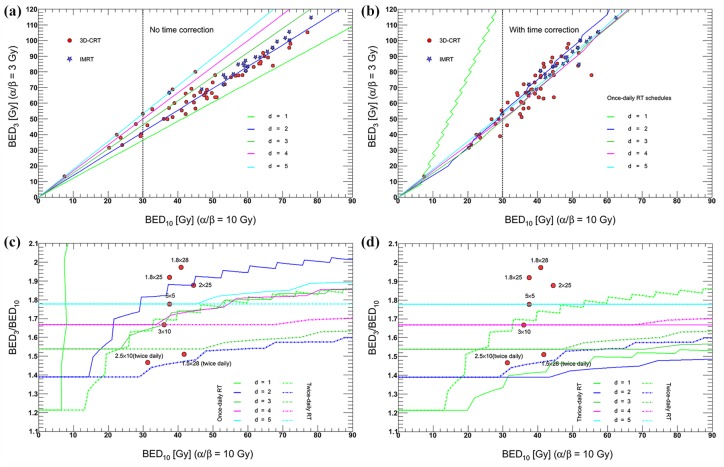Figure 1.
Linear–quadratic-model-based BEDs of most commonly used schedules of preoperative RT.
Filled circles and stars: actual used regimens; lines: theoretical calculation values as the ‘standard’ RT protocol, that is, five fractions per week from Monday to Friday. (a) BED without time correction. BED = nd [1 + d/(α/β)], where n = number of fractions, d = dose (Gy) per fraction, α/β = the LQ quotient; (b) time-corrected LQ-formula. BED = nd [1 + d/(α/β)] − γ/α (T − Tk), where γ/α = repair rate (set to 0.6 Gy/day), T = OTT and Tk = proliferation delay (set to 7 days). BED3: BED value when α/β is 3 for late toxicity. BED10: BED value when α/β is 10 for acute (tumor and normal tissue) toxicity; (c) the ratio of BED3 to BED10 as a function of BED10 with OTT correction using once- and twice-daily RT regimens. Filled circles: the mentioned fractionations in this text; lines: theoretical calculation values as the ‘standard’ RT protocol; a >6 h interfraction interval is used for multiple fractions per day; and (d) twice- and thrice-daily RT regimens.
BED, biologically effective dose; IMRT, intensity-modulated radiotherapy; LQ, linear quadratic; OTT, overall treatment time; RT, radiotherapy.

